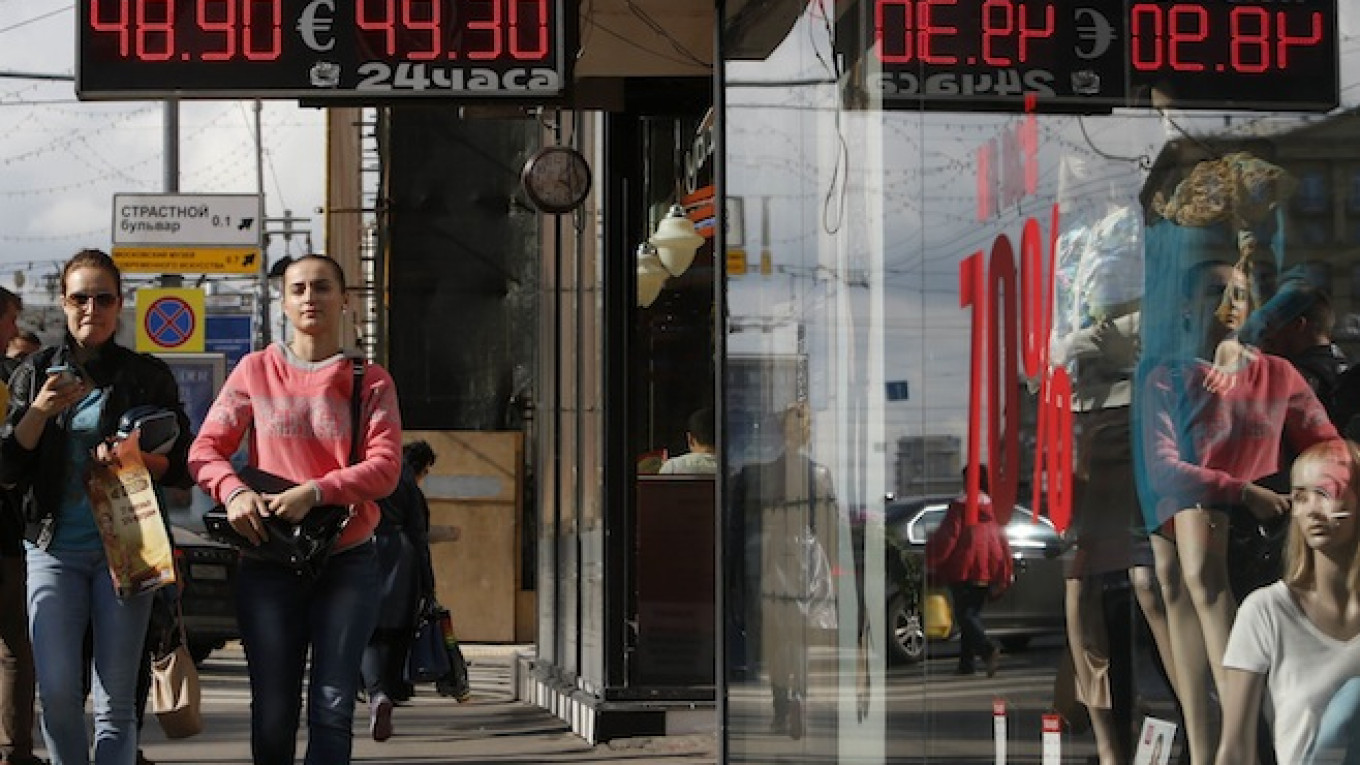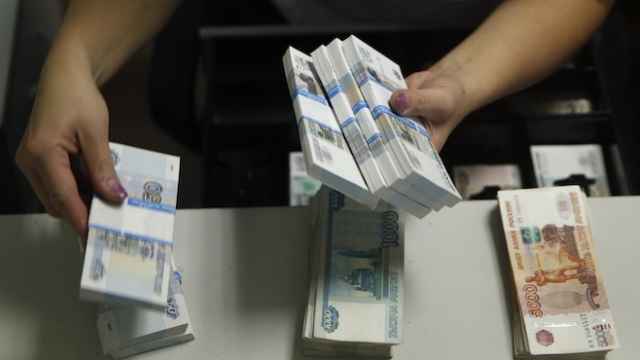The euro climbed against almost every other major currency on Wednesday after Ukraine said it has agreed on a cease-fire with Russia, offering some comfort to the euro zone economy which has borne the brunt of the impact of the conflict.
The euro rose to a day's high of $1.31565 after Ukraine's President Petro Poroshenko press office said an agreement was reached with Russia's Vladimir Putin for a "permanent cease-fire" in eastern Ukraine's Donbass region.
The news sent European stocks higher and safe-haven German Bunds lower.
"The Ukraine cease-fire has seen the euro bounce. But substantial gains are unlikely ahead of the ECB meeting," said a London-based spot trader.
The euro sank to a one-year low against the dollar on Tuesday, given the risk of a dovish European Central Bank. While the ECB is unlikely to take action this week, the threat of falling prices, along with uncertainty to the recovery from the Russia/Ukraine conflict, is likely to see President Mario Draghi flag the prospects of more easing in coming months.
The euro's recovery saw the dollar index edge down 0.15 percent to 82.68, although it was not far from a 14-month high of 83.058 struck earlier in the day. The dollar has made an impressive start to the month on strong economic data and a rise in Treasury yields.
Treasury yields steadied after a sharp rise, putting a brake on the dollar's rally, while the yen was supported by expectations that the Bank of Japan, which began a two-day policy meeting, may sit tight and reiterate its view that the economy is recovering moderately.
Against the yen, the dollar was flat at 105 yen, off a eight-month high of 105.28 yen. A rise above 105.45 yen would take the dollar to a high not seen since October 2008.
"While we expect no change to policy, Governor Kuroda may sound somewhat optimistic about inflation reaching its target at his press conference," Yujiro Goto, currency strategist at Nomura, said referring to Bank of Japan chief Haruhiko Kuroda.
"That may see the yen recover some ground and some profit taking in dollar/yen. But the dollar's momentum against the yen is towards the upside, especially given the U.S. data. So any dip in the dollar should be used as a buying opportunity."
Apart from U.S. data which is likely to buoy the dollar, the yen is likely to stay on the defensive amid renewed hopes about a highly anticipated portfolio shift in Japan's behemoth Government Pension Investment Fund, or GPIF.
The GPIF asset allocation overhaul, due to be announced in coming weeks, is expected to see the fund move into riskier assets including stocks and foreign bonds, which could increase demand for foreign currencies.
In a move welcomed by the Tokyo stock market, Japanese Prime Minister Shinzo Abe drafted Yasuhisa Shiozaki, 63, a proponent of an overhaul of the GPIF, to head the ministry of labour, health and welfare, which oversees the GPIF.
"Large moves in dollar/yen catch the attention of retail day traders, who appear to be showing a renewed interest in trading after the long lull," said Bart Wakabayashi, head of currencies at State Street in Tokyo.
Sterling was at $1.6475, having tested a low of$1.6445, its lowest since Feb. 12. It posted its biggest one-day percentage fall since January this year on Tuesday after a poll that showed growing support for the "yes" vote in the Scottish referendum.
A Message from The Moscow Times:
Dear readers,
We are facing unprecedented challenges. Russia's Prosecutor General's Office has designated The Moscow Times as an "undesirable" organization, criminalizing our work and putting our staff at risk of prosecution. This follows our earlier unjust labeling as a "foreign agent."
These actions are direct attempts to silence independent journalism in Russia. The authorities claim our work "discredits the decisions of the Russian leadership." We see things differently: we strive to provide accurate, unbiased reporting on Russia.
We, the journalists of The Moscow Times, refuse to be silenced. But to continue our work, we need your help.
Your support, no matter how small, makes a world of difference. If you can, please support us monthly starting from just $2. It's quick to set up, and every contribution makes a significant impact.
By supporting The Moscow Times, you're defending open, independent journalism in the face of repression. Thank you for standing with us.
Remind me later.






